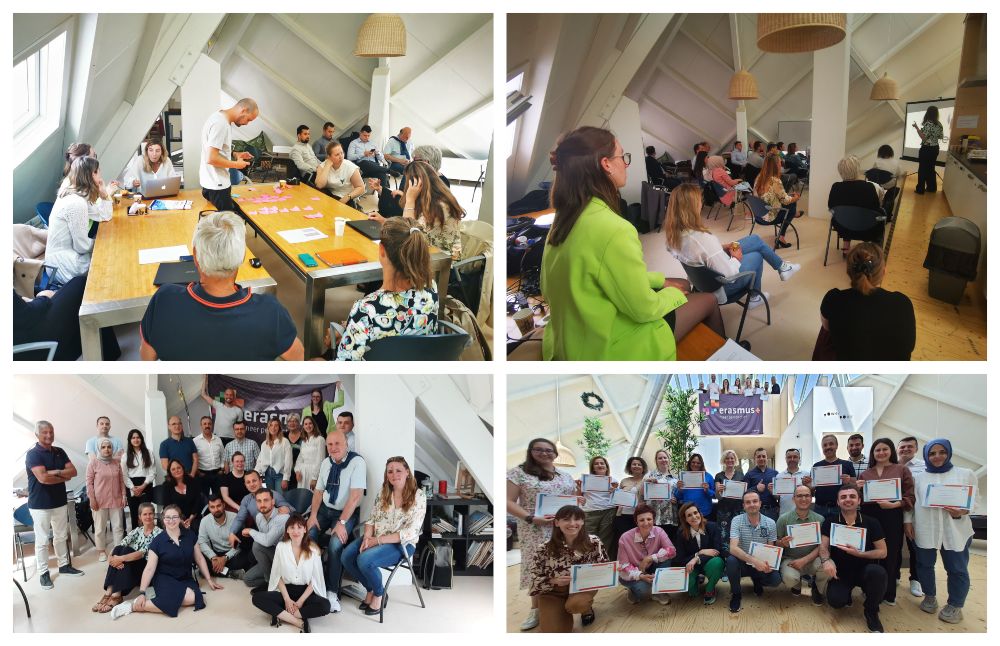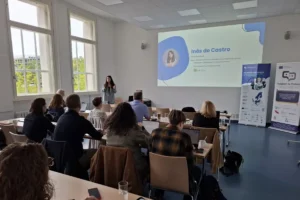A European initiative takes the next steps to bring a new blended-learning platform to prisoners and ex-prisoners. The goal is to develop their digital skills and increase the opportunities for (re)integration.
As an essential requirement for using digital devices, communication applications, and networks to access and manage information, digital skills provide individuals with the ability to communicate, cooperate, create and share digital content.
The importance of digital skills when entering the job market
Nowadays, more than ever, the adoption of digital skills is critical, as societal changes are altering our lifestyles. These skills are increasingly required to fulfil our day-to-day needs, in tasks such as completing a payment using an ATM or a phone.
Within the business world, digital skills are in high demand. The tasks that require mastering such competencies have widened an already considerate skills gap.
Therefore, the lack of digital skills significantly impacts an individual’s life, namely its application to the job market.
While the digital skills needs are many and diverse across different areas of work, developing basic competencies can facilitate the job hunt process. It can also improve the chances of job retainment, a crucial step in preventing recidivism.
Reducing the digital skills gap using a blended learning environment in prisons and probation
One of these short-term staff training events of the BLEEP project was held from the 17th to 19th of May, 2022, in Rotterdam (Netherlands).

Know more about this project

BLEEP
Blended Learning Environment for European Prisoners
Both events have been organised by Exodus Foundation South Holland (Stichting Exodus Zuid-Holland), BLEEP project partner, and held at the Cube Houses in Rotterdam. All members of the consortium were present, including its promoter CLICK F1 (Netherlands), IPS_Innovative Prison Systems (Portugal), CHAINS (Netherlands), Direção Geral da Reinserção e dos Serviços Prisionais (Portugal), STEPS (Italy), Stichting Exodus Zuid-Holland (Netherlands), European Prison Education Association (Netherlands), and the Bucharest-Jilava Penitentiary (Romania).
For more information on the BLEEP project, please visit its webpage.
Related projects

VR4React
Reducing Reactive Aggression through Virtual Reality

VR4DRUG Rehab
Developing and Using Virtual Reality Technology for the Rehabilitation of Drug Users in Probation Services

VISION
Visualising the Future Through Training

ViRTI
Virtual reality for training inmates

Turning Blue
Integrating Young Offenders Through the Blue Economy

TRIANGLE
Secured digital education system for vocational skills for youngsters in closed institutions

TRAIVR
Training of Refugee Offenders by Virtual Reality

STEP2LAB
Systematic Transition from Prison into the Labour Market

SPORT4PRISONS
New sports method for prisons as a tool to support competency development, positive values, and reintegration

RE[ENTER]
Strengthening the capacity of criminal justice professionals and volunteers
Related news

IPS showcases virtual reality solutions for skills development and stress management at Berlin workshop
Read More »
IN2PREV Final Conference highlights cross-sector collaboration for refugee inclusion and radicalisation prevention
Read More »
JUSTICE TRENDS Magazine Launches 14th Edition: Expanding the Frontiers of Rehabilitation Support
Read More »





